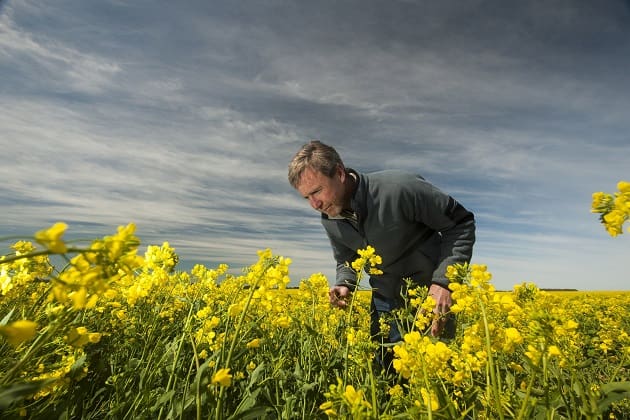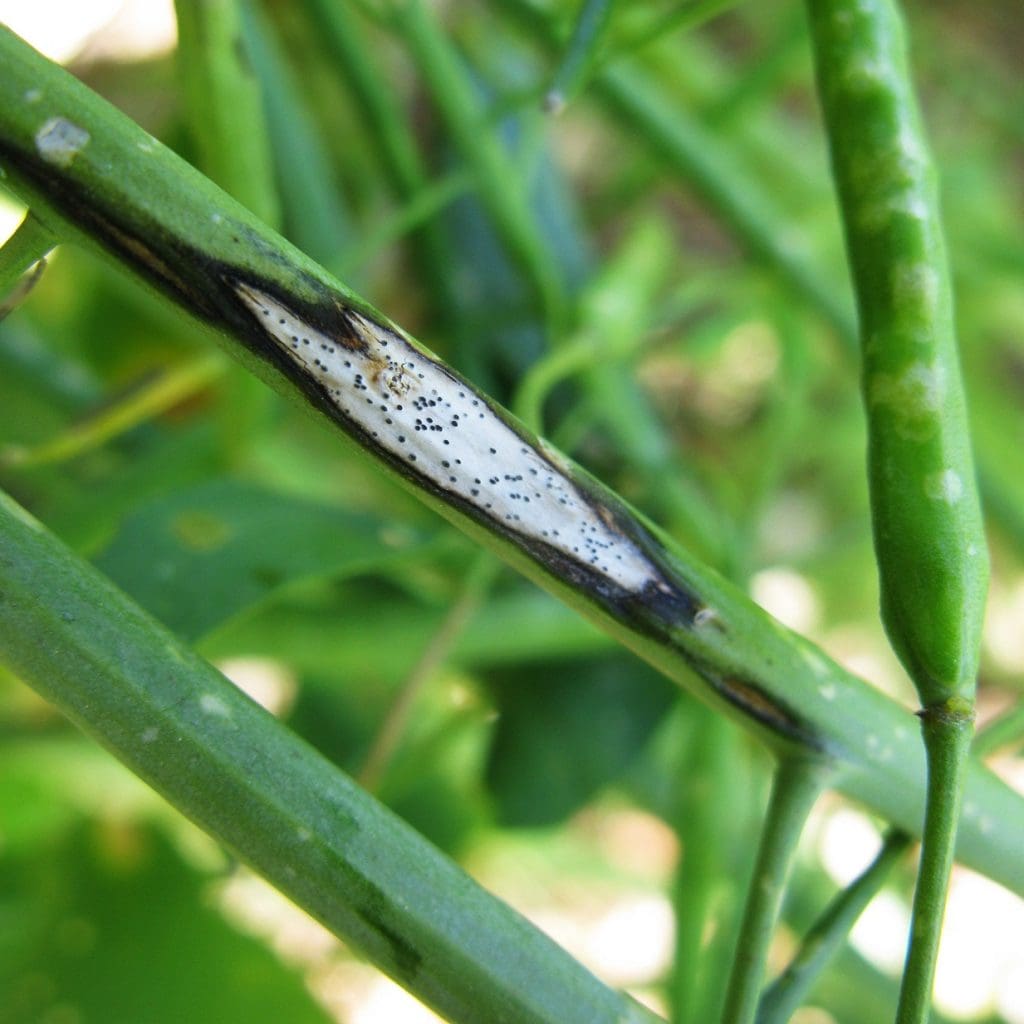
Oilseeds disease expert Steve Marcroft says the incidence of blackleg upper canopy infection this year has been widespread. (Photo: Brad Collis)
Prolonged cool conditions over recent weeks have favoured the progression of blackleg upper canopy infection (UCI) in canola crops across south eastern Australia.
Oilseeds disease expert Steve Marcroft, of Marcroft Grains Pathology, said the incidence of UCI this year had been widespread.
“Infection has been reported in canola crops from South Australia’s Eyre Peninsula right across into Victoria and up through southern New South Wales,” Dr Marcroft said.
“While blackleg UCI has become increasingly prevalent over recent years, its presence normally drops away as we move into August and temperatures start to rise.
“But this year the extended cool conditions have favoured the progression of the disease through to the start of flowering.”
Many growers have been and will be applying fungicides (those used for sclerotinia stem rot control) at around 30 per cent bloom to reduce UCI severity and yield losses.
Field experiments have shown that blackleg UCI – a collective term that describes infection of flowers, peduncles, pods, upper main stem and branches – can cause yield losses of up to 30pc.
The impact on yield varies depending on the timing of infection and plant part infected. Flower loss from infection of flowers or peduncles is unlikely to directly reduce yield as the plant is able to compensate by producing more flowers.
However, Dr Marcroft said the fungus could grow into the associated branch which could then affect seed set and grain filling in surrounding pods. Infection of pods or peduncles after pod formation could result in significant yield loss.
“Yield loss can be due to a reduction in seed size, seeds per pod and/or pods per square metre, and oil content can also be reduced,” he said.
While the crown canker blackleg is well understood, the factors contributing to UCI and possible control strategies are currently under investigation through GRDC research investments.
It is now thought that UCI infections are also systemic, causing damage to the plant’s vascular tissue, similar to traditional blackleg crown infections.
The issue for growers is that external symptoms may appear insignificant, but internal vascular damage may cause significant yield losses. Preliminary results indicate this may be why fungicide applications on crops with few symptoms can still result in economic yield returns.
Source: GRDC
Dr Marcroft has produced two videos to assist growers with identifying blackleg UCI in canola and controlling the disease. These are available to view via http://bit.ly/2MJrMSi.
Growers can determine likely economic yield returns from fungicide application for UCI by using the BlacklegCM app. Developed with GRDC investment, the app can be downloaded onto tablets (not smartphones) from both the App Store and Google Play.
The BlacklegCM app can indicate potential yield benefits of different control options and is an extension of the GRDC’s Blackleg Management Guide, which is updated twice a year to reflect frequent changes in the blackleg resistance status of canola varieties.
The Blackleg Management Guide can be found at https://grdc.com.au/GRDC-FS-BlacklegManagementGuide, and canola disease resistance ratings are also available via the GRDC’s National Variety Trials (NVT) portal at www.nvtonline.com.au.
More information on blackleg UCI is contained in the GRDC Grains Research Update paper at http://bit.ly/2ZtbUVU.
The GRDC’s ‘10 Tips To Early Sown Canola’ publication, https://grdc.com.au/10TipsEarlySownCanola, also contains useful information.




HAVE YOUR SAY